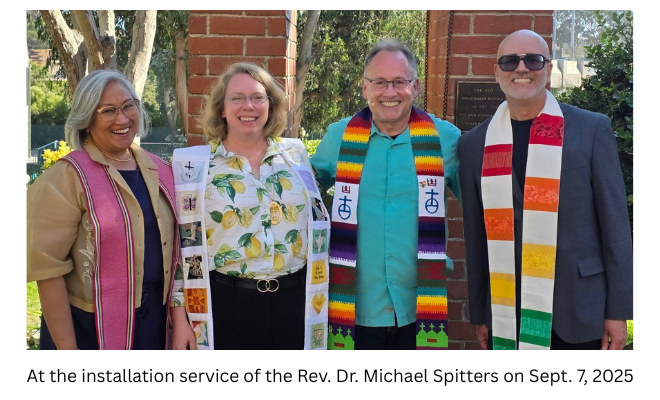Conference Minister’s Reflection

You may have noticed a bit of a delay in the newsletter schedule. Since last week, I’ve been working on this article in response to a particular moment of tragedy in our national experience. But as the days went on, the tragedy kept changing — sometimes by the hour.
What is there to say in the midst of such senseless suffering? What explanation can be given for the cruelty humans are capable of inflicting? We can talk about “root causes” until we are out of breath, but there are moments (more and more of them lately) when the why seems less important than the what; and how we survive is what matters most.
There’s a well-timed movement afoot to update the UCC’s 1986 Book of Worship. Much of the language feels dated, and new resources for some of our new realities will certainly be appreciated in our ministry settings. But I suspect I’ll spend most of my life defaulting to the words etched into my heart since childhood, from the “Service of the Word and Sacrament II,” Invitation B:
Luke, the evangelist, wrote of our risen Savior, who at the table with two of the disciples took bread and blessed and broke it and gave it to them. Their eyes were opened, and they recognized the risen Christ in the breaking of the bread. We respond in unison: In company with all believers, in every time and beyond time, we come to this table to know the risen Christ in the breaking of the bread.
In the depths of their grief, two disciples are walking to Emmaus when they encounter Jesus without not knowing it. Everything they had been working for has been upended by a treasonous arrest and a cruel state-sanctioned murder. They’ve lost their teacher and also their dear friend. They’ve lost hope in the future they were trying to build. The empire is just too powerful to resist, and they are exhausted. They fear for their lives.
All day long, Jesus preaches to them. He interprets scripture. He walks with them in their suffering, their heads downcast. But it’s not until evening, in the act of breaking bread, that they finally see the Christ who was with them all along.
In every time and beyond time — times of hope and of despair — times of joy and of grief — we may not find comfort in preaching. We may not find it in explanations or justifications or campaign strategies or webinars. We may not find it in thoughts and prayers. But in the wordless breaking of the bread, we have this assurance, that Christ will come again. In the company of two or three, or an entire congregation, we recognize an impossible, inexplicable love that conquers hate. In the gatherings of people who do this laughable, archaic ritual — politely-passed croutons and juice for violently-snatched flesh and blood — we are transformed into a company of believers. We are united by hope that is sometimes too tender and sacred for words.
I’m not sure what to say in this moment. But I’m certain that the way forward begins with breaking bread, and with audaciously insisting that every time we do, it is a foretaste of the feast to come. Make a brunch date. Invite a new friend to dinner. Serve communion, even if it isn’t “communion Sunday,” even if it’s in place of the sermon.
Holy One: set our hearts on fire with the realization that you’ve been with us all along. Remind us to keep practicing the kin-dom you envision, around open tables where tears and laughter are equally welcome. May we be a witness for peace by the company we keep.
